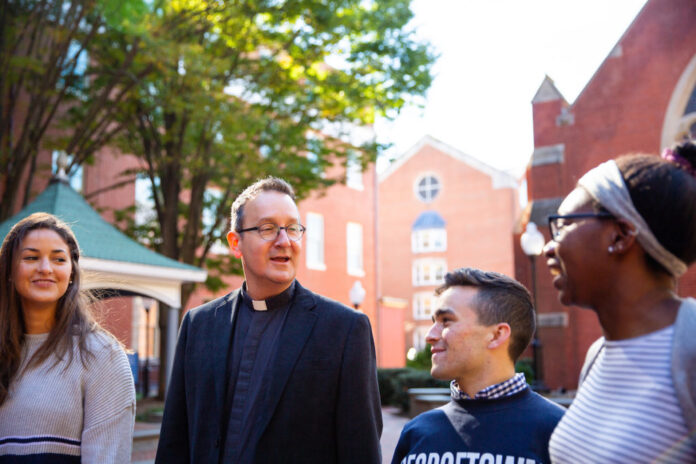Last Tuesday JESC observed the Feast of St. Matthew who is is chiefly remembered for his humility as well as his ‘courage to embrace the possibility of what he could become’, as described by our colleagues at Discerning Leadership. In observance of this day we remained thankful for our work and the opportunities that have arisen, as well as those that lie before us.
For the Jesuit Higher Education world, St Matthew’s Feast auspiciously falls at the same time as many of us are returning to our work and studies, resuming our rhythm, and preparing for the transition from summer to autumn.
Work, events, and preparations continue. In reflection of Ignatian spirituality, the International Association of Jesuit Universities has sought to counter the fracturing and isolation that the COVID-19 pandemic has engendered. To do this, the Magis Student Exchange Programme, which seeks to anchor once more the principle of Jesuit Education that we are world citizens has resumed. This year, 30 students and 15 universities are engaging in the mission to build a generation of citizens who have participated in a semester-long academic and service-learning international exchange program
In a similar vein, the Association of Universities Entrusted to the Society of Jesus in Latin America (AUSJAL) and the Association of Jesuit Colleges and Universities in the United States (AJCU) have organised a Virtual Immersion Experience with the goal of connecting students from North and South America, so as to improve their intercultural competence and communication.
Looking more closely at the actions of the ACJU, the Jesuit Promise of Lifelong Learning is advancing. Recently, the Deans of Jesuit Business Schools in the United States have announced a programme to allow alumni to audit business classes at sister Jesuit colleges and universities.
These efforts serve to make world citizens who have a greater understanding of the world’s cultures, ways of life, institutions, and people. These efforts also bring about enlightened leaders formed in the Jesuit tradition who advocate for global openness, collaboration, communication, and shared responsibility for the world’s needs. This is vital to face the challenges of the recent pandemic and the sustained challenges of the 21st century which include increasing division, inequality, and crises such as climate change.
As stated by Dr Ana García-Mina Freire, Vice-President of Comillas Pontifical University of Madrid, Jesuit Higher Education must remain energised by a spirituality that holds at its core a call to be ‘agents of social transformation’ and of justice and reconciliation. The exchange and cooperative education programmes of Jesuit Universities mentioned above is unequivocally aligned with this mission.
Once again, we can remind ourselves of how St Matthe aswered this same call: to embrace the possibilities of what could be. May this sentiment carry everyone forward during this new term of Jesuit Higher Education.
Paul Angelo Deans
Intern at Jesuit European Social Centre (JESC)


